You are here
New Releases
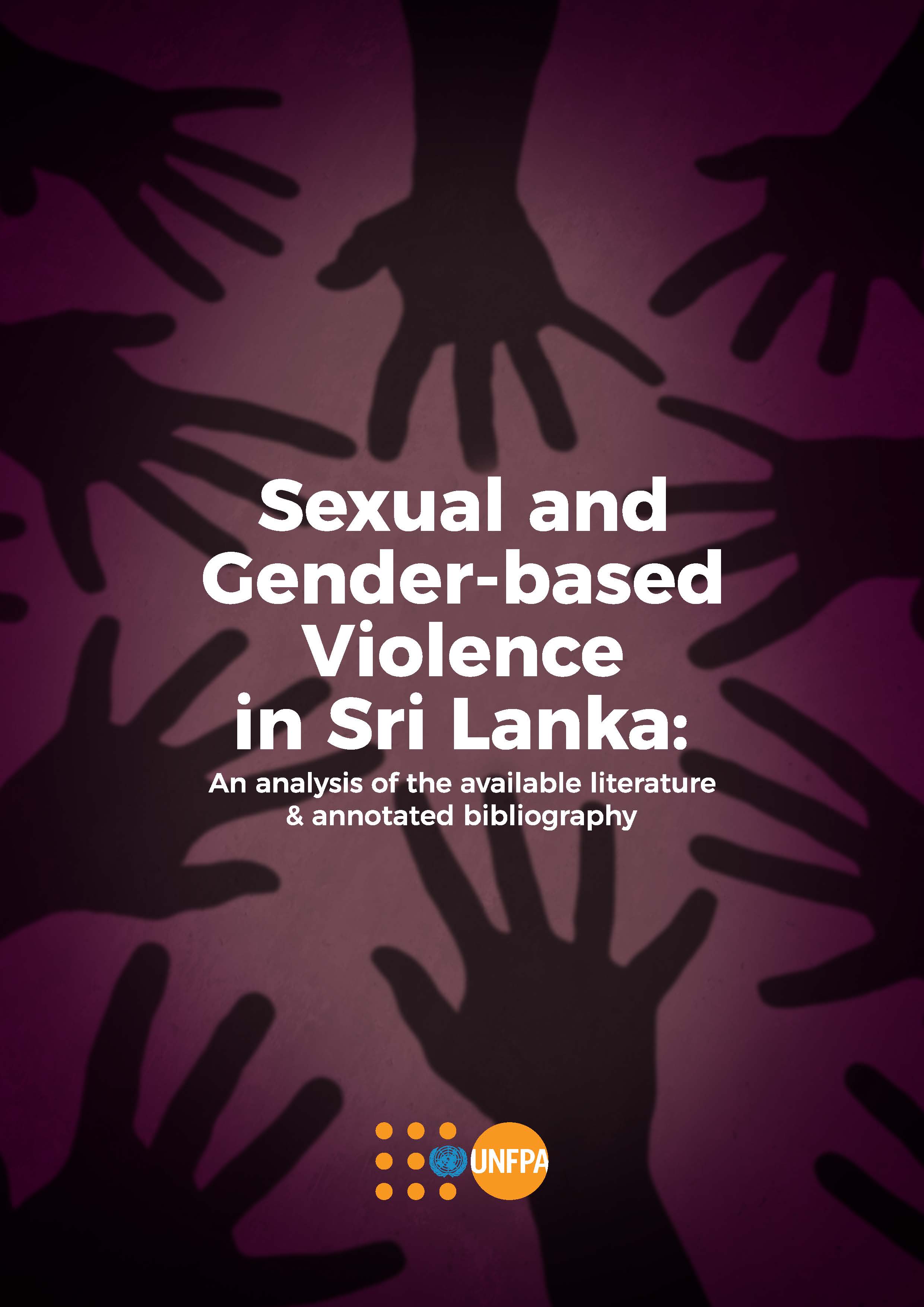
Sexual and Gender-Based Violence in Sri Lanka: An analysis of the available Literature & Annotated Bibliography
The subject of SGBV in Sri Lanka has interested researchers for a long time.1 Most research has been done at sub-national or local level, focusing on specific aspects of the issue or targeting selected sub populations or community groups, and often hospital based. However, there is a dearth of national-level data.
The purpose of this literature review is to make available the prevalence and accessible research evidence on SGBV in Sri Lanka. It is expected that this document will be a collection of information for future researchers to use.
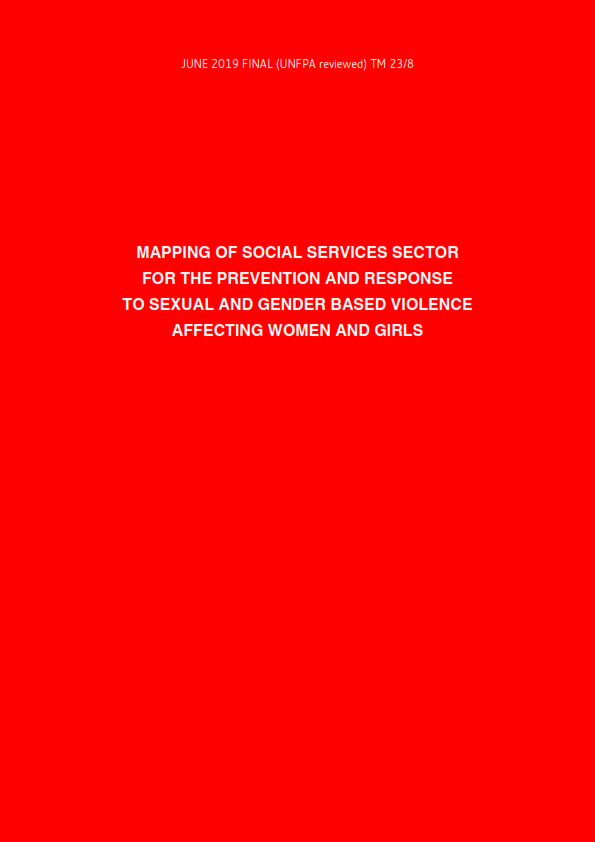
Mapping of social services sector for the prevention and response to sexual and gender-based violence affecting women and girls
This rapid mapping of the social services sector response for survivors of sexual and gender based violence elaborates on the requirements to strengthening and sustaining SGBV responses while highlighting the importance of timely implementation of the UNFPA assisted multi-sectoral National Action Plan on Women Headed Households.
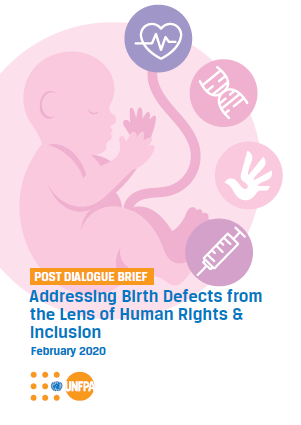
Addressing Birth Defects from the Lens of Human Rights & Inclusion
UNFPA Sri Lanka hosted a panel discussion at the 9th International Conference on Birth Defects and Disabilities in the Developing World (ICBD) which was held from 23rd to 25th February 2020 in Colombo.
The session took the form of a dialogue focused on a human rights and gender equality angle to disability and birth defects. The dialogue highlighted rights-based approaches to promote inclusion and accept
diversity of people with disabilities; and providing SRH services and comprehensive sexuality education to them. This post-dialogue brief provides a snapshot of the panel discussion and advocacy pointers that can assist in evidence-based policymaking.
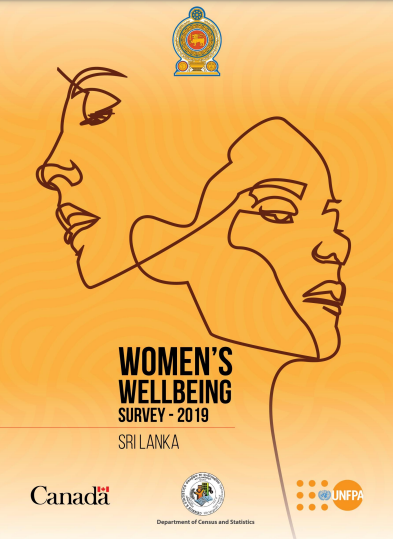
Women’s Wellbeing Survey - 2019
In 2019, the Department of Census and Statistics conducted the first dedicated national prevalence survey on violence against women. Known as the Women’s Wellbeing Survey (WWS) it covered all 25 districts in Sri Lanka and interviewed more than 2,200 women aged 15 and above. The study found that in Sri Lanka, one in five (20.4%) ever-partnered women have experienced physical and/or sexual violence by an intimate partner in their lifetime. In analyzing women’s coping strategies when living with violence by a partner, the study found that nearly half (49.3%) of the women who experienced sexual violence by a partner did not seek formal help anywhere due to reasons such as shame, embarrassment, and fear of being blamed or not being believed, and/or thinking the violence was normal or not serious enough to seek help. Violence by partners in any form can have a significant impact on women’s health and wellbeing and is also interconnected with the socio-economic recovery from crises such as the COVID-19 pandemic.
This Women’s Wellbeing Study was technically supported by the United Nations Population Fund with financial assistance from the Government
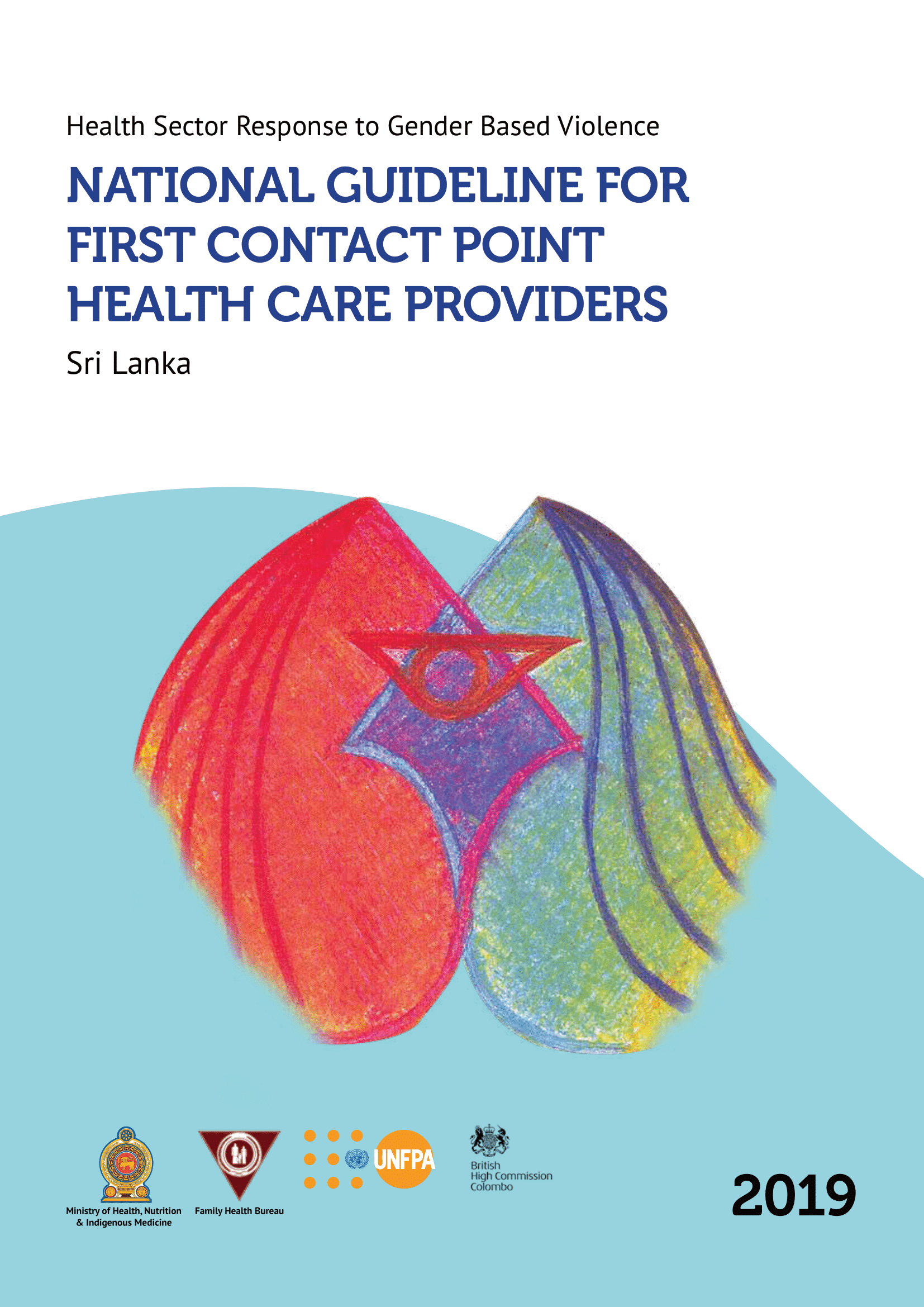
Health Sector Response to Gender Based Violence: National Guideline for First Contact Point Health Care Providers
The United Nations Population Fund (UNFPA) is the lead UN agency working to further gender equality and women’s empowerment in Sri Lanka. We are pleased to be a part of the joint effort with the Ministry of Health to develop the first ‘Standard Operating Procedures on sexual and gender-based violence for first-contact-point healthcare providers.
Gender-based violence is one of the most prevalent human rights violations in the world. It is estimated that globally 1 out of 3 women have experienced physical and/or sexual violence in their lifetime. When women and girls are victims of violence, they are more likely to become vulnerable to forced and unwanted pregnancies, unsafe abortions, and sexually transmitted infections including HIV, let alone long-lasting psychological trauma.
These operating procedures were developed alongside the ‘National guidelines on sexual and gender-based violence’, which aims to strengthen Sri Lanka’s health systems response to survivors of violence.UNFPA stands ready to provide continued assistance to the Government of Sri Lanka and all key stakeholders to ensure women and girls receive essential services that support their safety, well-being and access to justice and to create a violence-free Sri Lanka.
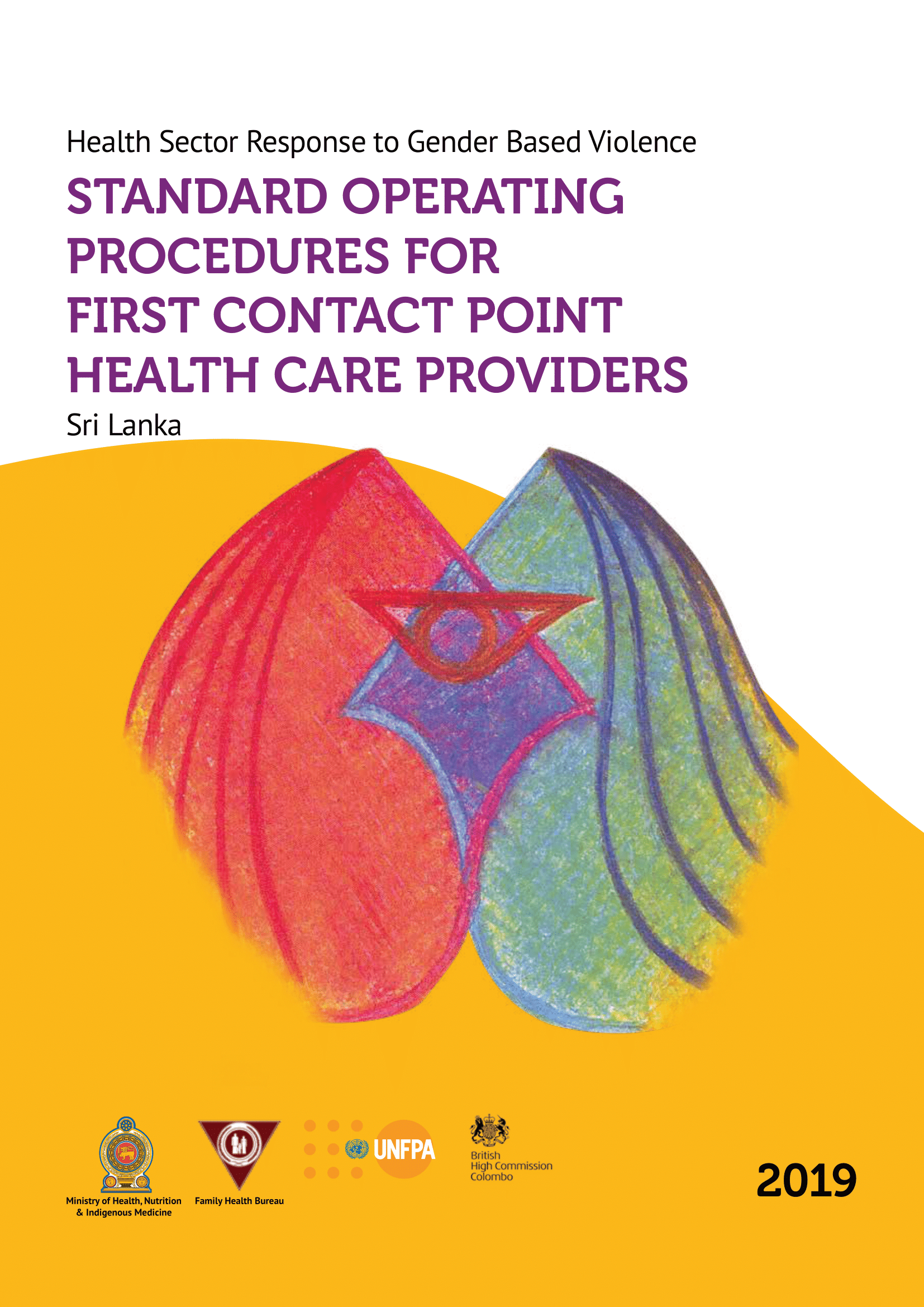
Health Sector Response to Gender Based Violence: Standard Operating Procedures for First Contact Point Health Care Providers
The United Nations Population Fund (UNFPA) is the lead UN agency working to further gender equality and women’s empowerment in Sri Lanka. We are pleased to be a part of the joint effort with the Ministry of Health to develop the first ‘Standard Operating Procedures on sexual and gender-based violence for first-contact-point healthcare providers’.
These operating procedures were developed alongside the ‘National guidelines on sexual and gender-based violence’, which aims to strengthen Sri Lanka’s health systems response to survivors of violence. We are grateful to the British High Commission in Colombo for their support in developing these guidelines and procedures as they mark an important milestone in creating a safer Sri Lanka for all women and girls. UNFPA is proud to be a part of this journey, and we stand ready to provide continued assistance to the Government of Sri Lanka and all key stakeholders to ensure women and girls receive essential services that support their safety, well-being and access to justice and to create a violence-free Sri Lanka.
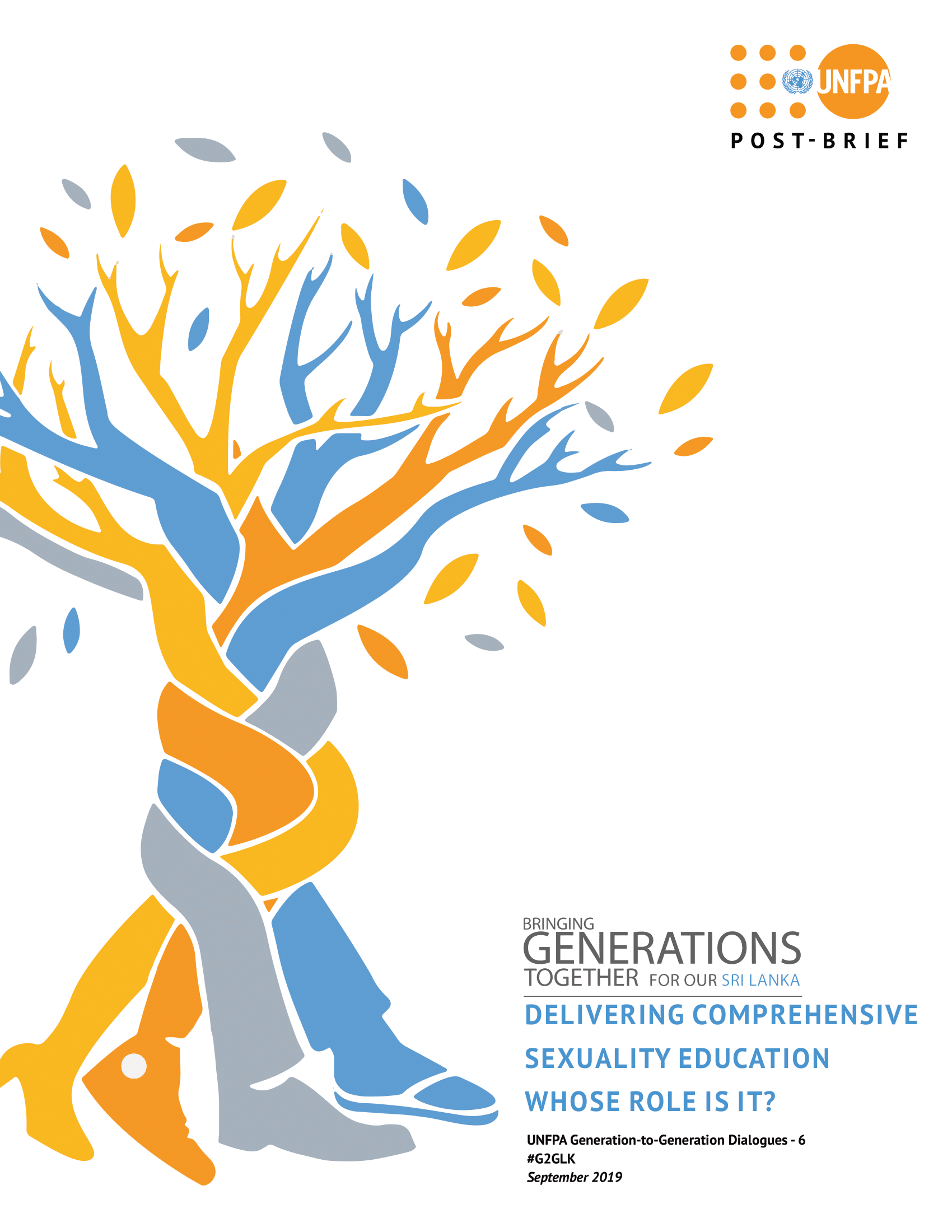
Delivering Comprehensive Sexuality Education- Whose Role Is It?
The United Nations Population Fund (UNFPA) hosted its 6th Generation-to-Generation dialogue in partnership with the Ministry of Education to
highlight that a wide range of stakeholders share responsibility in providing comprehensive sexuality education.
To understand the current context of delivering Comprehensive Sexuality Education in Sri Lanka, the Ministry of Education, with support from
UNFPA, commissioned an island-wide study on the ‘Analysis, of Knowledge and Attitudes of School Children’s Sexual and Reproductive Health
Education’. A policy brief based on the study was formulated and launched at the event.
This post-brief document provides a snapshot of the discussions of the G2G dialogue and provides advocacy pointers that can assist in
evidence-based policy making.
மகிழ்ச்சிமிகு, சிறந்த குடும்பத்துக்கான நேர்முக தொடர்பாடல்
Violence against women and girls is one of the most prevalent human rights violations in the world. The costs of violence are extremely high and include direct costs to the country as well as the untold cost inflicted on survivors and their communities for generations to come. Putting an end to this grave issue requires the efforts of ground-level health officials working with survivors who face brutal realities.
Taking this purview, the Ministry of Health with the support from the United Nations Population Fund (UNFPA) launched a resource package on the ‘Health Sector Response to Prevention and Management of Gender-based Violence’.
The package includes a Gender-based Violence Behavioral Change Communication Manual for Healthcare Providers and the Standard Operation Procedures (SOPs) and Guidelines. These important tools will assist and guide health sector officials to improve the overall health sector response to survivors of gender-based violence in a coordinated and standardized manner. These life-changing tools were developed in alignment with the Health Sector Module of the Essential Service Package, which is an international guideline-based on best practices for a response for survivors and victims of sexual and gender-based violence.
සතුට සපිරි යහපත් පවුලක් උදෙසා ධනාත්මක සන්නිවේදනය
Violence against women and girls is one of the most prevalent human rights violations in the world. The costs of violence are extremely high and include direct costs to the country as well as the untold cost inflicted on survivors and their communities for generations to come. Putting an end to this grave issue requires the efforts of ground-level health officials working with survivors who face brutal realities.
Taking this purview, the Ministry of Health supported by United Nations Population Fund (UNFPA) launched a resource package on the ‘Health Sector Response to Prevention and Management of Gender-based Violence’.
The package includes a Gender-based Violence Behavioral Change Communication Manual for Healthcare Providers and the Standard Operation Procedures (SOPs) and Guidelines. These important tools will assist and guide health sector officials to improve the overall health sector response to survivors of gender-based violence in a coordinated and standardized manner. These life-changing tools were developed in alignment with the Health Sector Module of the Essential Service Package, which is an international guideline-based on best practices for a response for survivors and victims of sexual and gender-based violence.
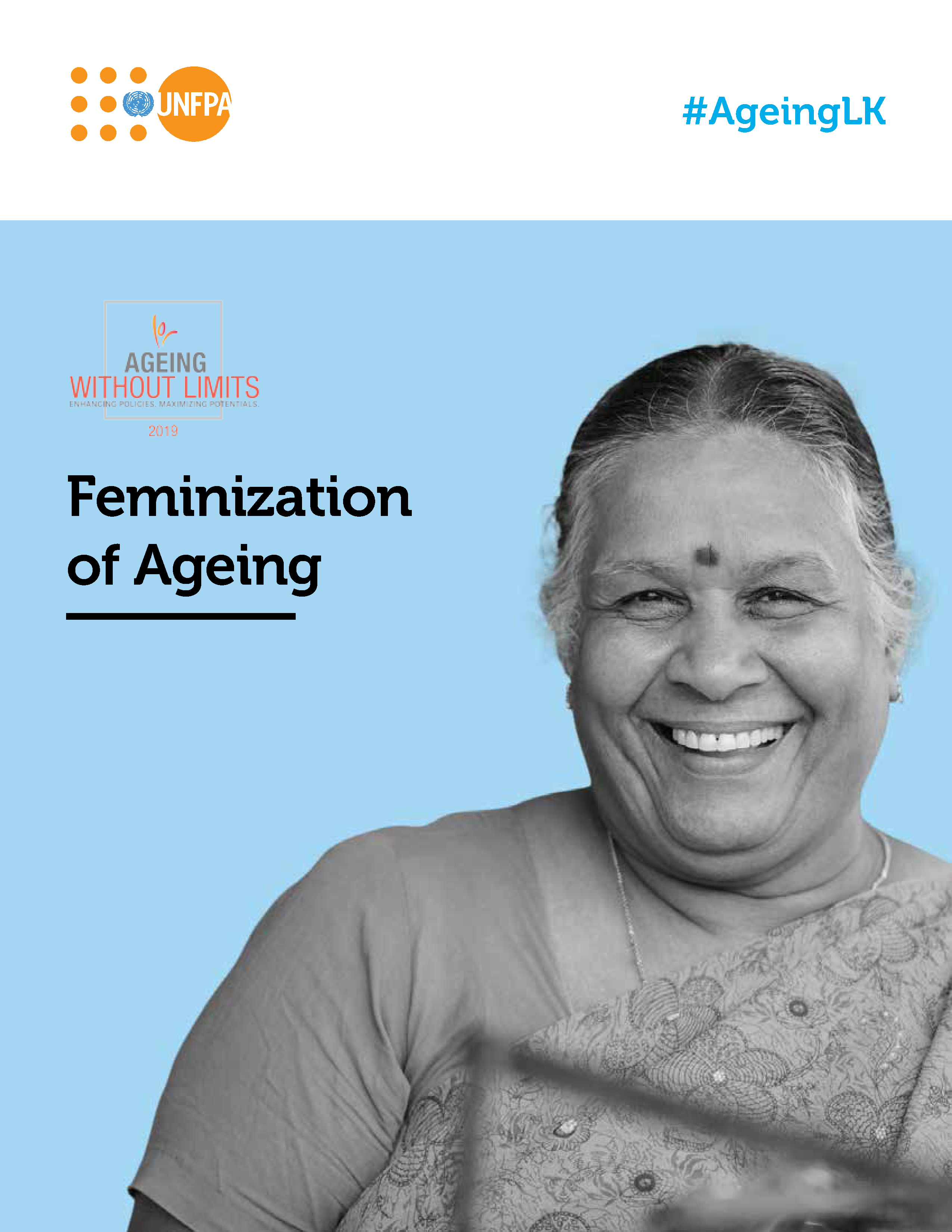
Feminization of Ageing
Sri Lanka is fast becoming a country that has the oldest people in the South Asian region. It is also one of the fastest ageing countries in the world. Between 1981 and 2012, the proportion of the population aged 60 years and above, has increased from 6.6% to 12.4%. It is estimated that by 2030, 1 in 5 people in Sri Lanka will be above the age of 60. Globally and in Sri Lanka, women continue to make up a growing majority of the older population. This marks the feminization of ageing.
In line with this, the United Nations Population Fund (UNFPA) in partnership with the Ministry of Primary Industries and Social Empowerment, together with HelpAge Sri Lanka, convened the second of a series of high-level policy dialogue on population ageing, titled ‘Ageing Without Limits. The dialogue aims to provide policy-level inputs to maximize the opportunity of population ageing, with learning from good practices and lessons learned from other countries. The dialogue was on the topic of ‘Feminization of Ageing’, with a focus on gender dimensions of population ageing, sexual and reproductive health, and social protection issues. The dialogue was led by a panel of local and international experts with the participation of relevant officers from government agencies, civil society, the private sector, the development sector, and academia.
The fruitful discussions assisted the compiling of this post brief which aims to act as an aid to address elder care issues in the country through effective policy making.